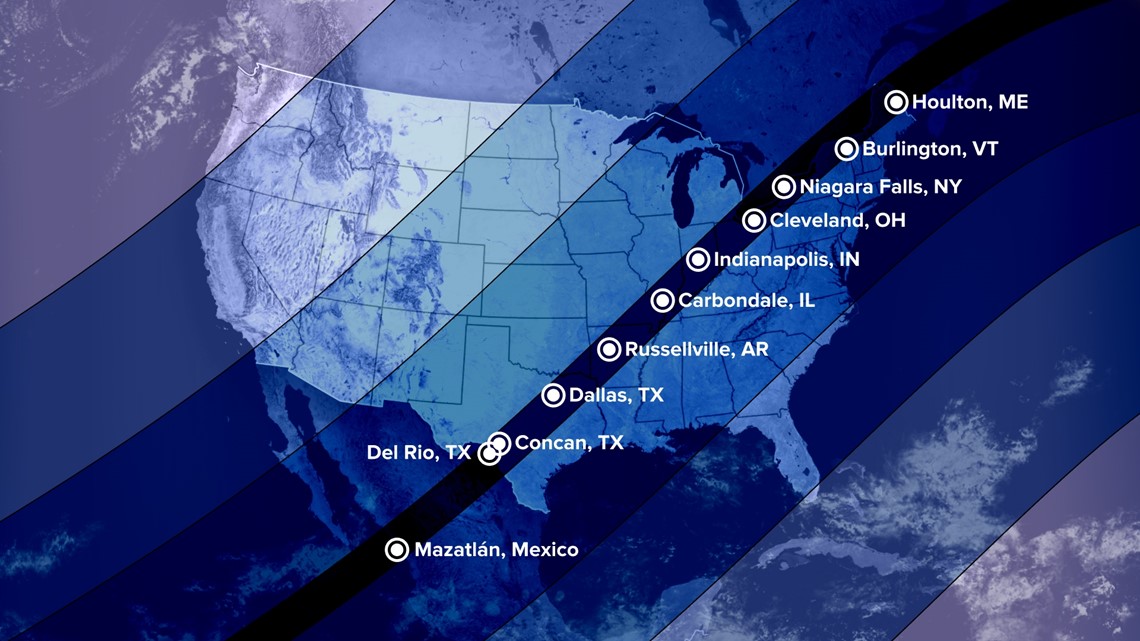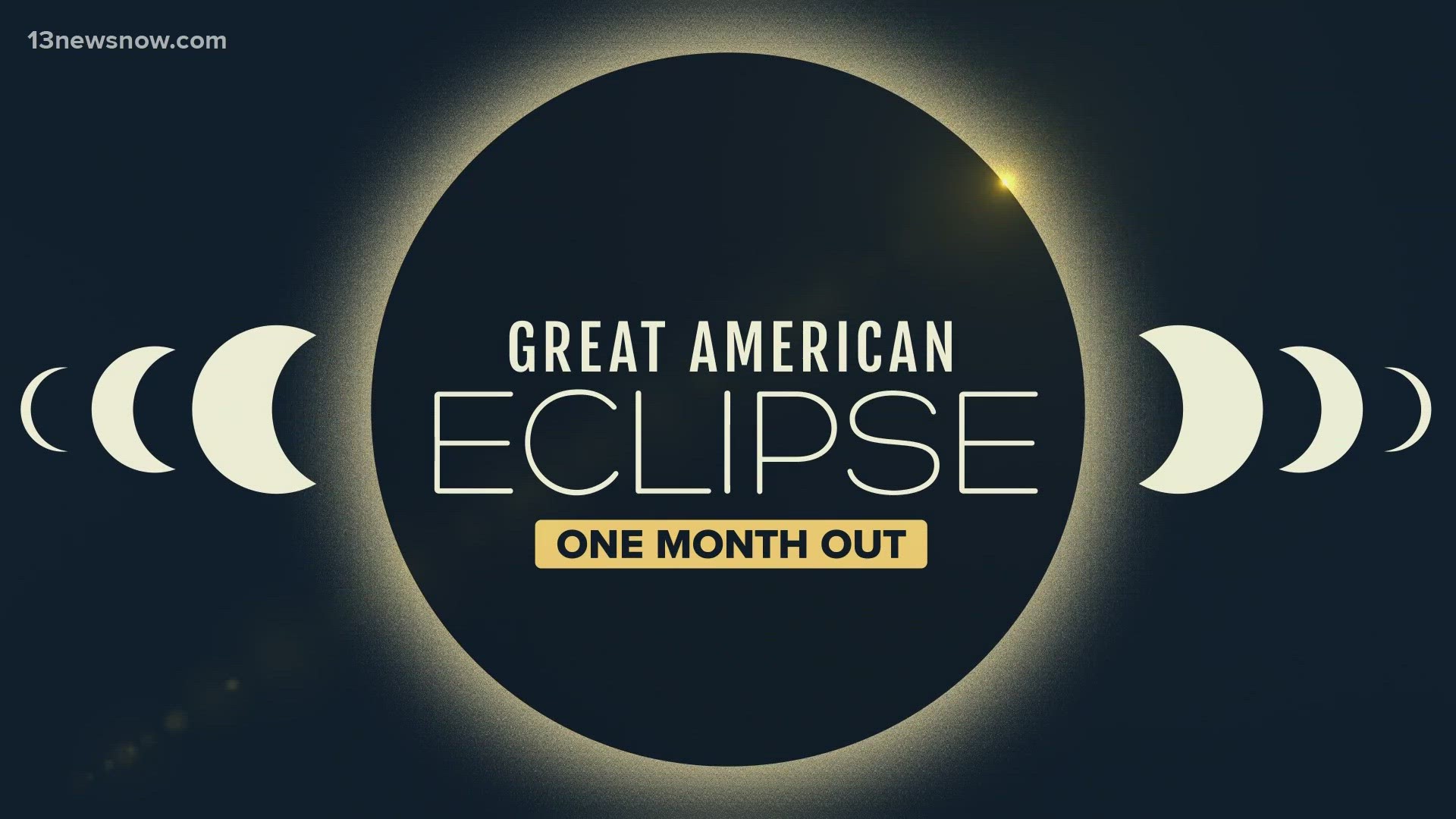NORFOLK, Va. — Next week, much of the United States will see a total solar eclipse, where the moon will block the sun for several minutes, casting a shadow on our planet. While Virginia isn't in the path of totality, those in the Commonwealth will still see part of it.
The eclipse will take place on April 8, passing through Mexico, the United States and Canada. NASA's 2024 eclipse map shows the totality path, or "umbra," spans in a northeasterly direction from southern Texas through parts of the Midwest and northeastern parts of the country.
In Virginia, the obscurity of the sunshine increases the further west or north you go. If you want to take a road trip within Virginia to see the eclipse, here are the places that will have the most noticeable view.
Winchester, Virginia
According to NASA's eclipse map, this Northern Virginia city will see the eclipse peak at 90.1% sunshine coverage at 3:19 p.m.
The trip to Winchester is around four hours from Norfolk, two hours and 45 minutes from Richmond, an hour and a half from Washington, D.C., and just under three hours from Roanoke.
And aside from the solar eclipse, there's a lot to do in this city, including the Museum of the Shenandoah Valley and Old Town Winchester. Check out Virginia is for Lovers' website for an itinerary of the city.
Shenandoah National Park
The sunshine coverage will vary at the Shenandoah National Park, which covers a long and narrow section of the Blue Ridge Mountains. The eclipse won't be as noticeable as in Winchester, but the coverage increases the further north you go.
Front Royal, the town at the park's northern end, will see the eclipse peak at 89.2% coverage at 3:18 p.m., while Waynesboro at the southern end will peak a minute earlier at 87.2%.
This national park is the ideal option if you're looking to hike to view the eclipse. Some of the most popular hikes include Old Rag Mountain, Hawksbill Summit and Stony Man. You can also check out Big Meadows for its panoramic view of the sky and wide open field.
The national park's northern end is about three and a half hours from Norfolk, two and a half from Richmond, and an hour and 15 minutes from D.C.
Harrisonburg, Virginia
If you don't want to hike or drive into the mountains, check out Harrisonburg in the Shenandoah Valley. NASA's eclipse map shows that this city will see the eclipse peak at 88.5% sunshine coverage at 3:17 p.m.
From hiking to breweries, restaurants and boutique shops, Harrisonburg has a lot to offer if you plan to stay before or after the eclipse.
The city is under four hours from Norfolk, two hours from Richmond and D.C., and an hour and 45 minutes from Roanoke.
How far is the path of totality from Virginia?
Those who want to travel to the path of totality will have to go a long way west or north: hundreds of miles, to be exact. Some of the nearest cities to Virginia with high coverage include Indianapolis, Indiana; Dayton, Ohio; Cleveland, Ohio; and Buffalo, New York.



